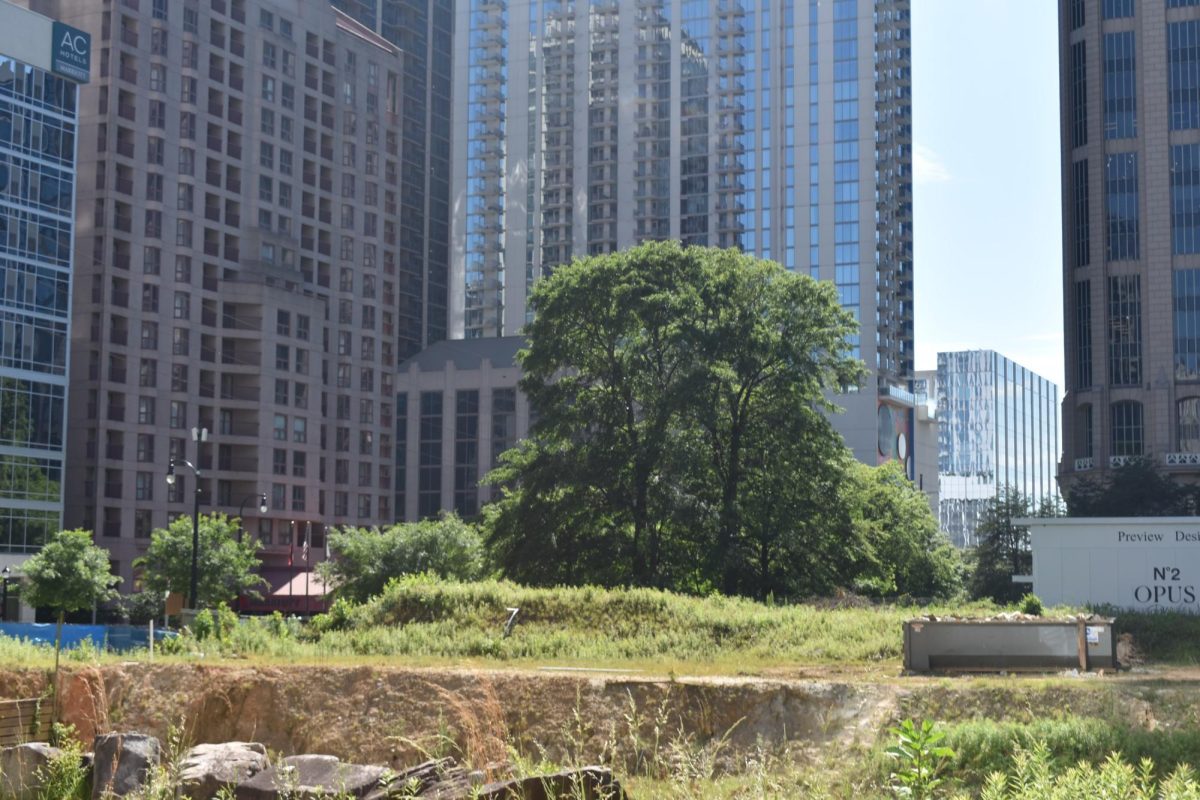By Rachel Citrin
Junior Jenny Moody attended Fulton Science Academy, a charter school, in order to be surrounded by a small class of high-achieving students and teachers.
“[Fulton Science Academy] was a good charter school because there were small classes, which allowed people to work closely together, not only to get to know each other better, but also to work more efficiently with each other,” Moody said.
According to a new Georgia law, each school district must declare its operational system as either charter, status quo or IE2 by June 2013. IE2 is Educational Excellence legislation which permits balanced local control and allows officials who are close to students to make important decisions about their schools. The passage of this new law means that many schools, including Grady, may be changing from their current system if the school systems decide on a change for all schools.
One viable option for APS is to switch to charter schools, schools that are independent but use public funds. Some parents and public education leaders, however, fear the increased momentum in using charter schools to replace public schools could lead to decreased access to quality education for all children.
Moody agrees that not all schools should become charter schools.
“The school drew good students and good teachers, but not all charter schools will be good. It matters how you set up the charter school.”
Over the past 20 years, the number of charter schools in the country has risen as part of the growing charter-school movement. From the 1999–2000 academic year to the 2008–09 school year, the number of students enrolled in public charter schools more than tripled from 340,000 to 1.4 million students. Georgia now has 113 charter schools, 12 of which are in APS.
“[The increasing desire for charter schools] in some degree is a way to address the bureaucracies in the public school system to get an education environment that is best for our children,” APS parent Kandy Outlaw said. “People are fed up with the fiasco from the school-board conflict or from the lack of a high-achieving curriculum, so many citizens are now opting for charter schools.”
Lisa Weldon, a founding member of Step Up for Public Schools, an active organization working to promote public schools, recognizes the merits of charter schools.
“[Charter schools] can have more innovation and often require more involvement from the community,” Weldon said. “Parents and teachers can have more control.”
Many charter schools use a lottery-based admission process. Weldon believes a system in which some students are admitted into charter schools and others are not can be detrimental. Charter schools may sometimes only accept five percent of the students who apply, while public schools have to accept all students living in the community.
Because every student is not guaranteed a spot, Weldon believes charter schools could split up neighborhoods and ruin traditional public schools, siphoning away motivated and involved families that move to charter schools.
“While there are good charter schools, it does not mean that they will always provide more benefits than public schools,” APS board member Cecily Harsch-Kinnane said. “In addition, in a public school, you do not have a limited population, and it is a cornerstone of democracy.”
Weldon believes charter schools can end up harming some students who are not as affluent. She says that Riverwood, a charter school in Sandy Springs, has a lot of involved parents who have increased the amount they charge for students to play sports.
“As a result, many kids cannot afford to play sports anymore,” Weldon said. “A local public school system, in contrast, looks out for everybody: the rich, the poor, the South, and the North.”
Others, such as Harsch-Kinnane, are worried that charter schools are not held accountable to uphold the curriculum after the start-up years.
“[Charter schools] do not have the same accountability as public schools as long as their students show adequate progress in meeting state academic standards,” Harsch-Kinnane said. “Once a charter school opens and has been approved [after the 3-5 year start-up time frame], there is nothing to keep them accountable and operating as they should be.”
Lea McLeod, parent, has recently started a public charter school in Atlanta called Intown Academy. She said she established the school to raise the academic bar as well as to provide services parents were not getting at traditional public schools. She is also working on a charter school that works to refocus boys who have come from the juvenile justice system.
“Charter schools go into communities with low income and with a historically underserved population, and they bring in social support services that you would not otherwise get with traditional schools,” McLeod said. “They are more innovative.”
Outlaw, however, is concerned with the growing charter-school movement and said people need to look carefully at how to make public schools excellent so they are the schools of choice for most parents.
“We all need to know how to live in our society,” Outlaw said. “In public schools, we have a more realistic view of society because students are a lot more exposed to a diverse environment. Anything application-based means that some [students] will get in and some will not. If there are specific attributes of good students, they will be drawn out of public schools. This could lead to a segregation of society.”
Outlaw believes the charter-school movement will ultimately end up deteriorating public schools.
“Public schools can become a training ground for students bound for non-college degree programs, and our tax money will be split between two education models and will be spread too thin,” Outlaw said.
APS board members discussed their choices on Dec. 15 to decide what future actions to take based on school conversion, but they do not have to make a final decision until 2013.






